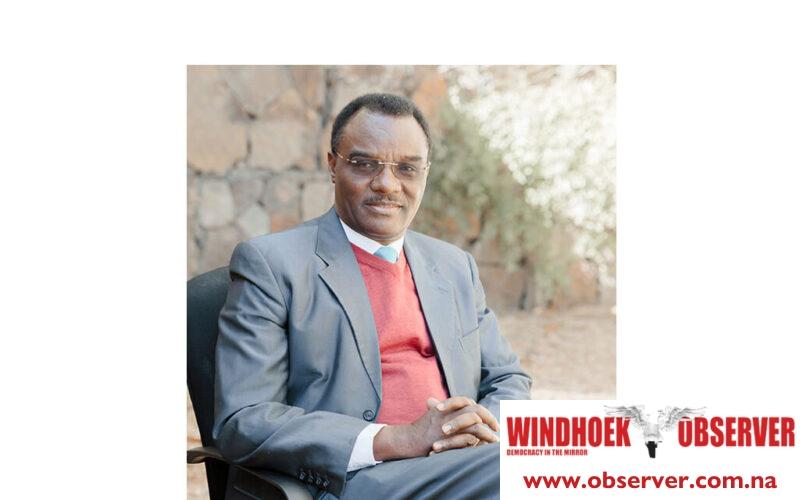Chamwe Kaira
Bureaucracy hinders Namibia’s attractiveness as a mining investment destination, prominent businessman, Dr Leake Hangala said this week.
“To be honest our mining regime in Namibia is quite attractive compared to other countries, some feel we may have high taxes, here and there,” he told Observer Money this week.
Hangala feels the problem in Namibia is bureaucracy. “The problem we have in Namibia is bureaucracy.
“The amount of time it takes to get some of the necessary permits and papers. If the government can reduce that as well the issues related to environment impact studies,” he said.
He said while doing environmental impact studies does not take long, the approvals take a long time sometimes, up to 12 months.
“We must just impress upon our civil servants and professionals to accelerate that process because a company can do the study in three months but wait for nine months for approval. You do the study in three months, but nine months later, you are just waiting for approval. It’s not nice and sometimes, it’s not major things but small things,” said Hangala, who is also chairman of B2Gold Namibia.
On the question whether the duration is necessary because the government has to make sure that all the steps are followed. Hangala responded: “Do you need nine months to take a decision on an environmental impact study? I think there is room for improvement. They must be room for improvement, you don’t need 12 months to for one to take a decision whether you say yes or no.”
The 2022 Fraser Institute Survey of Mining Companies released in May showed that Namibia improved on the overall Investment Attractiveness Index (IAI) by 7 points from 52 in 2021 to 59 in 2022.
On this index, Namibia was ranked 38th out of 62 jurisdictions surveyed, compared to 59 out of 84 jurisdictions in 2021.
Namibia ranked 6th out of 16 African jurisdictions surveyed on overall investment attractiveness.
The Chamber of Mines of Namibia said Namibia’s performance in the 2022 Fraser report was fairly good, although could have been better.
In terms of policy performance, Namibia did not fare well, with its absolute score falling by 6 points from 75 in 2021 to 69 in 2022.
The contributing factors to a decline on Namibia’s PPI were concerns related to the ‘Unilateral powers to the Minister of Mines to make various determinations like royalty levels, and a lack of minerals rights security’ as cited by respondents in the survey.
Namibia was ranked as the 3rd highest on PPI in Africa, which is evident that Namibia is perceived to have a relatively stable and attractive policy environment compared to other African countries.
The Chamber said it was actively engaging the Minister of Mines and Energy on the Minerals Bill and is confident that the policy concerns cited in the survey will be addressed in the Minerals Bill review.




